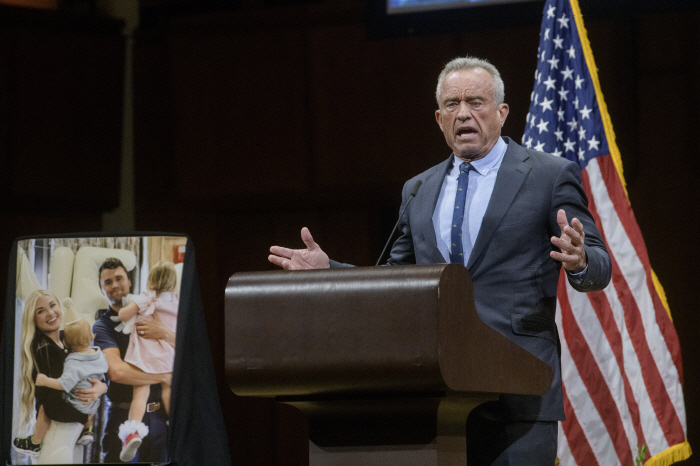I don't recommend getting mixed measles, mumps, rubella, and nipple vaccinations before the age of 4... Controversy over the adoption of a new policy by the Vaccination Advisory Committee
|
The ACIP has recently been filled with newly formed members of the committee by U.S. Secretary of Health and Human Services Robert Kennedy Jr., who has remained critical of vaccines.
According to local media in the United States, including the Associated Press, ACIP adopted a recommendation at the meeting that people should be vaccinated against measles, mumps, and rubella (MMR) mixed vaccines and chickenpox vaccines, respectively, instead of receiving MMRV mixed vaccines before the age of 4.
According to the recommendation, MMR vaccine and chickenpox vaccine are recommended separately for children 12 to 47 months of age, and MMRV vaccine is only recommended for children 4 years of age or older. This is based on research findings that the MMRV vaccine has twice the risk of developing febrile convulsions (fever attacks) when first inoculated in children under the age of 4. However, convulsions after inoculation occur very rarely. In the final vote on the recommendation, eight were in favor of it, one was against it, and three abstained.
Currently, approximately 85% of parents choose a chickenpox vaccine separate from MMR, and only 15% choose a mixed MMRV vaccine. The ACIP's decision will be finalized as an official recommendation after final approval by the CDC director.
In response to the recommendation, public health experts say the recommendation raises unfounded concerns among parents and could limit vaccination access. The MMRV vaccine maker Merck pointed out that the recommendation is likely to reduce vaccination completion and timely vaccination rates at a time when vaccination rates in the U.S. are falling significantly.
Meanwhile, the advisory committee postponed the vote on the recommendation that the newborn should not be vaccinated against hepatitis B until the first month of age unless the mother is a hepatitis B virus carrier. Hepatitis B vaccine is currently administered within 24 hours of birth. A new recommendation will also be adopted on the 19th regarding the eligibility for COVID-19 vaccination.
This article was translated by Naver AI translator.




